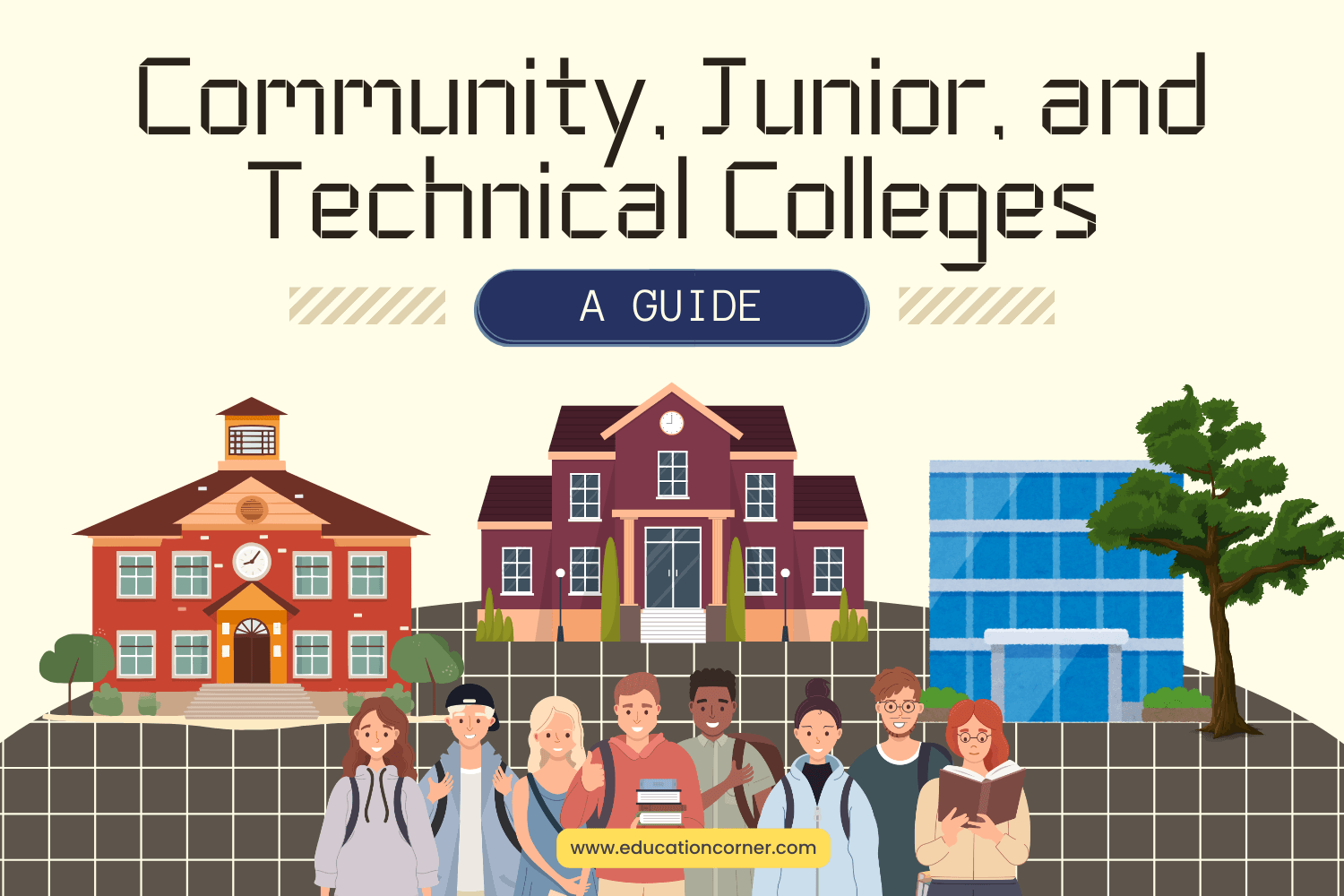Community colleges, popularly known as junior or technical colleges, are usually publicly subsidized two-year colleges offering associate’s degrees, certifications, and general education credits.
Many students transfer to four-year colleges and universities to pursue bachelor’s degrees after completing general education requirements or earning an associate’s degree from community colleges.
Numerous schools have made enough changes so they can be known as comprehensive colleges. These institutions usually provide the following types of education:
- Transfer Education – Students planning on transferring to 4-year institutions can complete general education requirements at these schools.
- Career Education – Associate’s programs designed for students planning to work after earning a degree are available at these institutions.
- Developmental – Remedial courses designed for people interested in attending college but needing to improve basic skills are available at these schools.
- Continuing – Community education and non-credit classes designed for people wanting to study a particular subject can be found at these institutions.
- Industry Training – Classes funded by local companies designed to train potential or current employees are available at these schools.
Most comprehensive schools contain articulation agreements with local four-year colleges and universities. Classes listed in these agreements can be completed at specific community colleges and be transferred to traditional colleges that agree to accept the credits.
Many four-year institutions which are counterparties to these agreements permit students enrolling in bachelor’s programs to complete the remainder of their classes at community colleges. This makes it possible for students to complete their education without having to relocate to a new city.

